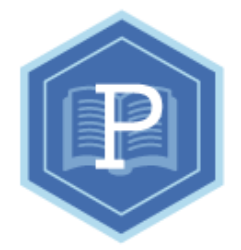Interventions – Grade Bands 6-8
Interventions for Advanced Language Concepts
Wilson Reading System®
The Wilson Reading System® (WRS) is a structured literacy program based on phonological coding research and Orton-Gillingham principles. The WRS directly and systematically teaches the structure of the English language. Through the program, students learn fluent reading (decoding) and spelling (encoding) skills to the level of mastery. Students in grades 6-8 build upon prior knowledge of closed, vowel-consonant-e, and open syllable types and apply that understanding to decode multisyllabic words with all six syllable types. Advanced language concepts including word elements and spelling options are explicitly taught as students learn to apply their decoding knowledge to tackle complex grade-level text. Students who continue to demonstrate a need for remediation in decoding and encoding after fifth grade receive 43 minutes of WRS® instruction as part of their daily bell schedule.
Orton-Gillingham Multisensory Reading
The Orton Gillingham approach to reading instruction is a structured, multisensory methodology designed to teach individuals with dyslexia and other reading difficulties effectively. Rooted in the principles developed by Dr. Samuel Orton and educator Anna Gillingham, this approach is characterized by its systematic and cumulative nature. It begins by teaching the basic phonetic and morphological components of the English language, ensuring that students grasp the fundamental building blocks of reading. The multisensory aspect involves engaging multiple senses, such as sight, sound, and touch, to reinforce learning. Lessons progress from simple to complex, ensuring a thorough understanding before introducing more challenging phonetic concepts. The approach emphasizes explicit, direct instruction, with teachers providing ample opportunities for practice and reinforcement. Each lesson incorporates the review of previously learned material, promoting retention and mastery, as well as a new concept introduction. Individualized pacing allows for tailoring instruction to each learner’s needs, ensuring a supportive and effective learning experience.
Sonday Reading System Level 2®
The Sonday Reading System® stands as an explicit, systematic, and multimodal intervention tailored to remediate students in the initial stages of decoding and encoding. Through a deliberate integration of multiple instructional modes, the program enhances students’ proficiency in both decoding and encoding. Sonday System Level I® offers a comprehensive review of pre-reading skills, concurrently emphasizing the rules governing language structure. This level provides explicit instruction on vowels, vowel pairs, blends, and digraphs, thereby strengthening students’ decoding capabilities for both single-syllable and compound words. As students progress to Sonday System Level II®, they undergo a thorough review of Level I, coupled with explicit instruction in syllable division rules and morphology. This multifaceted approach ensures a comprehensive and scaffolded learning experience, addressing the foundational aspects of language and progressively building decoding and encoding skills.
Equipped for Reading Success
Equipped for Reading Success by David Kilpatrick provides a series of carefully designed exercises, where students actively participate in auditory and oral tasks that focus on recognizing and manipulating individual sounds in words. These activities include listening and identifying initial, medial, and final sounds, as well as blending, segmenting, and manipulating sounds within words. These lessons provide a supportive and structured environment for older students to practice phonemic awareness skills, fostering their ability to discern and manipulate the smallest units of sound in spoken language
Morpheme Magic
Morpheme Magic proves to be a valuable resource for enhancing vocabulary and spelling skills in grades 4-8. Employing an explicit and systematic approach, Morpheme Magic offers comprehensive lessons and activities focused on prefixes, suffixes, roots, and Greek forms. By engaging students in targeted practice, this tool is designed to cultivate a deeper understanding of vocabulary, encouraging curiosity and exploration of words across various content areas. Morpheme Magic serves as a catalyst for empowering students with the linguistic tools necessary to navigate and appreciate the rich language within academic content areas.
Word Generation
Word Generation serves as a program designed to instill confidence and ease in students using academic language during everyday conversations. Utilizing engaging topics, Word Generation not only prompts students to participate in respectful discussions and debates but also fosters the use of Tier 2 vocabulary, reasoning skills, and evidence-based information. The program provides students with opportunities to gain insights into various perspectives, equipping them with the tools necessary to construct compelling arguments supported by data and reasoning. Through a combination of writing, discussion, and collaboration, students not only enhance their communication skills but also develop a foundation for informed and articulate expression in diverse real-world contexts.
Interventions for Building Fluency and Comprehension
Six Minute Solutions
Six Minute Solutions is an instructional routine designed to remediate students who demonstrate deficits in oral reading fluency. Students are paired with peers at similar skill levels to read nonfiction passages at their independent reading level (90-95% accuracy) and record each other’s progress with fluency and accuracy.
Repeated Oral Reading (RORs)
Repeated Oral Reading is an instructional routine designed to remediate students who demonstrate deficits in oral reading fluency. Students are provided passages at their independent reading level (90-95% accuracy) and guided through a structured routine of guided repeated oral reading. The structured routine consists of a combination of teacher-modeled fluent reading, explicit feedback on elements of fluency such as prosody and expression, as well as goal-setting and progress monitoring by the student.
Interventions for Math Concepts and Number Sense
Concrete-Representational-Abstract
The Concrete-Representational-Abstract (CRA) instructional approach is designed to scaffold students’ learning by gradually moving from concrete experiences to abstract understanding. Multiple representations of mathematical concepts support diverse learning styles and help students develop a deeper understanding of mathematics.
In the concrete stage, students interact with manipulatives, such as algebra tiles, to build a foundational understanding of abstract mathematical ideas. When students transition to the representational stage, they visualize through diagrams and models, making connections between the concrete experiences and mathematical symbols. In the final abstract stage, students work with equations and algorithms without the need for physical objects or visual aids. At this stage, students apply their understanding of mathematical concepts in symbolic form, solving problems using mathematical notation and procedures.
Quarterly benchmark data provides information on each student’s strengths and areas of need. Weekly progress monitoring on their focus goal determines the next steps in their WIN learning progression. Some students may require additional time in the concrete or representational stages before successfully navigating the abstract stage. This method offers a structured and gradual approach, systematically building a deeper understanding of math concepts.
Number Sense and Fluency
Number sense refers to a deep understanding of fundamental mathematical concepts and the ability to work with numbers in various contexts. A strong number sense in 6th-8th grade is essential for students to build a solid foundation for more advanced mathematical concepts in high school and beyond. It helps them become confident problem solvers and critical thinkers in various mathematical contexts.
Fluency in mathematics refers to the adeptness in performing mathematical operations swiftly and accurately, combining speed, precision, and flexibility in applying mathematical procedures. This proficiency extends from basic operations with whole numbers to more intricate mathematical concepts, including operations with rational numbers and evaluating expressions.
It is essential to recognize that number sense serves as the foundation for the development of fluency in math. A robust number sense enables individuals to comprehend the relationships between numbers, a crucial skill for efficient math. With a well-developed number sense, individuals can employ mental math strategies effectively, making them more likely to choose efficient approaches when encountering mathematical problems, leading to quicker and more accurate solutions.







